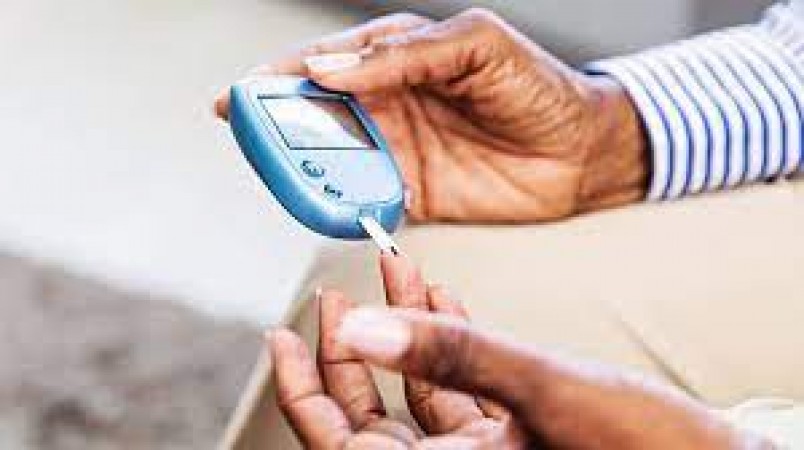
In the modern hustle and bustle, maintaining a healthy lifestyle has become paramount, and a key component of that is managing blood sugar levels. High blood sugar is not just a concern for those with diabetes; it affects everyone. In this comprehensive guide, we'll explore five doctor-recommended methods to naturally reduce blood sugar levels.
Before we delve into solutions, let's grasp the basics. Blood sugar, or glucose, serves as a crucial player in our body's energy regulation. However, when not regulated correctly, it can lead to various health issues.
High blood sugar is not a trivial matter. Its consequences range from fatigue and irritability to more severe complications like diabetes. Understanding these impacts is the first step towards a healthier you.
Now, let's explore the doctor-endorsed methods to naturally lower blood sugar.
A well-balanced diet is the cornerstone of good health. Including whole grains, lean proteins, and plenty of vegetables in your meals helps regulate blood sugar.
Fiber-rich foods, such as fruits, vegetables, and whole grains, play a crucial role in slowing down the absorption of sugar, preventing sudden spikes. These foods contribute to a feeling of fullness, reducing overall calorie intake and supporting weight management.
Whole grains, in particular, contain complex carbohydrates that take longer to digest, providing a steady release of glucose into the bloodstream. This sustained release helps in maintaining stable blood sugar levels throughout the day.
Physical activity is not just about weight management; it significantly impacts blood sugar levels.
Engaging in aerobic exercises, such as walking or cycling, enhances insulin sensitivity. Insulin is a hormone that helps cells absorb glucose, and improved sensitivity means better blood sugar control.
Aerobic exercises also contribute to weight management, reducing the risk of insulin resistance. The American Diabetes Association recommends at least 150 minutes of moderate-intensity aerobic exercise per week.
Staying hydrated is more than just quenching your thirst; it plays a role in maintaining stable blood sugar levels.
Proper hydration supports kidney function, aiding in the elimination of excess sugar through urine. Dehydration can lead to higher blood sugar concentrations, emphasizing the importance of staying adequately hydrated.
Drinking water before meals also helps control appetite, preventing overeating and promoting weight management – a crucial factor in blood sugar regulation.
Sleep is often underestimated, but its impact on blood sugar regulation is profound.
Adequate, quality sleep helps the body manage insulin more effectively. Sleep deprivation can lead to insulin resistance, making it challenging for cells to respond to insulin and regulate glucose effectively.
Establishing a regular sleep schedule, creating a relaxing bedtime routine, and ensuring a comfortable sleep environment are key components of promoting quality sleep.
Chronic stress can wreak havoc on your blood sugar levels, making stress management crucial.
Practicing mindfulness techniques, such as meditation or deep breathing, can significantly reduce stress and positively influence blood sugar. Stress triggers the release of hormones like cortisol and adrenaline, which can lead to increased blood sugar levels.
Incorporating stress-reducing activities into your routine, such as yoga or spending time in nature, can have long-lasting benefits on both mental well-being and blood sugar regulation.
Implementing these doctor-approved methods may seem daunting, but small changes can lead to significant improvements.
Integrate these practices gradually into your routine to make them sustainable. Consistency is key when it comes to adopting a healthier lifestyle. Small, achievable goals are more likely to become lasting habits.
Consulting with healthcare professionals, such as nutritionists or fitness experts, can provide personalized advice tailored to your needs. These experts can help you create a realistic and effective plan that aligns with your lifestyle and health goals. Lowering blood sugar levels naturally is not an unattainable goal. By incorporating these methods into your daily life, you empower yourself to take charge of your health. In summary, a balanced diet, regular exercise, hydration, quality sleep, and stress management are essential components of a holistic approach to naturally lowering blood sugar levels. Understanding the interconnectedness of these factors and making informed lifestyle choices can lead to improved overall health and well-being.
Why Girls Wear High Heels: Reasons Beyond Height Enhancement
You can also look stylish by making such hairstyle
Want to get a suit tailored for Basant Panchami? Take design and color ideas from here